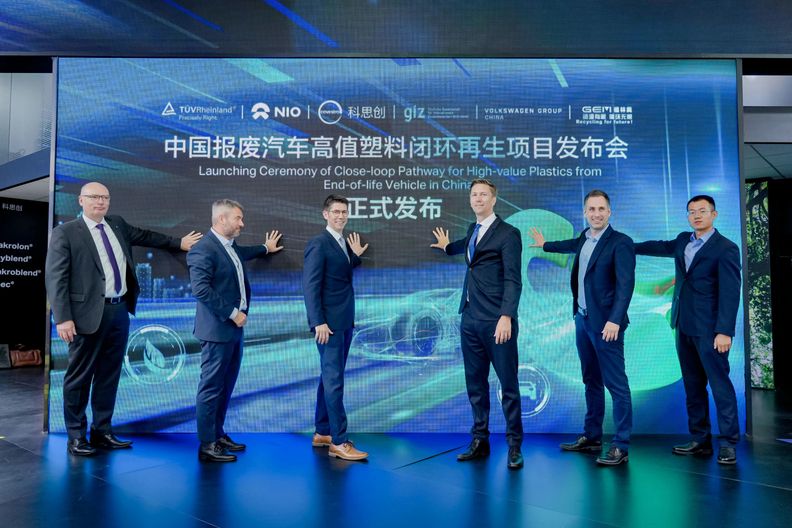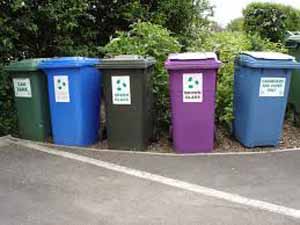Prodded by consumer demand and increasingly stringent regulations, the importance of – and need for – plastic recycling has penetrated the awareness of industries across the board. That includes the automotive branch.
Materials manufacturer Covestro, together with partners from the automotive value chain, is taking part in a pilot programme initiated by German federal enterprise GIZ (Deutsche Gesellschaft für Internationale Zusammenarbeit), to explore the feasibility of car-to-car closed-loop plastics recycling. Establishing closed-loop pathways for high-value plastics from end-of-life vehicles (ELVs) could present one way to tackle the challenges of plastic waste management in the sector.
The goal is to create an efficient and sustainable automotive plastic recycling system, advancing the more sustainable “transformation of the industry”. The pilot program was announced at Covestro’s booth during the CHINAPLAS 2024 international trade fair in Shanghai. Notable partners include leading automotive brand owners such as NIO of China and Volkswagen, Chinese recycling company GEM, and third-party certification bodies like TÜV Rheinland.
“Through this joint program, we aim to expedite the automotive industry’s transition toward a more climate-neutral and sustainable future,” said Lily Wang, Global Head of the Engineering Plastics Business Entity at Covestro.
The automotive industry stands as one of the most resource-intensive sectors globally, noted Martin Hofmann, Cluster Head in charge of Climate, Energy, Environment and Biodiversity at GIZ. “Yet the potential of high-value plastics from ELVs remains largely untapped. I firmly believe that GIZ and our partners can forge a path towards the transition to a sustainable, circular economy.”
As part of the pilot program, a team of professionals will explore methods to recycle and process waste polycarbonate components, such as end-of-life car headlights, into post-consumer recycled (PCR) polycarbonates. The recycled materials will then be reused for various interior and exterior vehicle applications, saving resources and reducing carbon emissions.
This could offer urgently needed long-term solutions for the automotive manufacturing industry, which seeks high-quality PCR materials that are compliant and high-performance amid increasingly stringent regulations. For example, in 2023, the European Commission proposed a new regulation to enhance the circularity of the automotive sector, mandating that 25 percent of the plastics used in a new vehicle must come from recycling, of which 25 percent must be recycled from end-of-life vehicles.
Covestro will also be showcasing more solutions for the automotive industry at its booth at the CHINAPLAS 2024, such as an intelligent front grill and mono-material polycarbonate headlamp that are designed for a connected and circular future.
The company is committed to becoming fully circular. In addition, Covestro aims to achieve climate neutrality for its Scope 1 and Scope 2 emissions by 2035, and the Group’s Scope 3 emissions are also set to be climate neutral by 2050. Covestro is exhibiting at Chinaplas 2024, booth 7.2-C38, April 23 to 26, 2024, showing, among others, an intelligent front grill and mono-material polycarbonate headlamp that are designed for a connected and circular future.
Source: sustainableplastics.com








